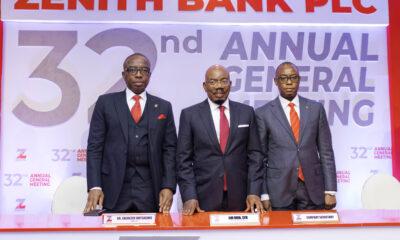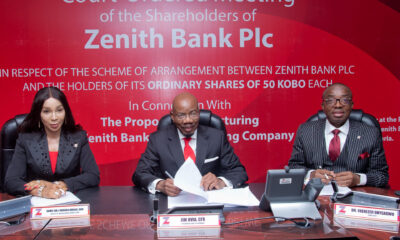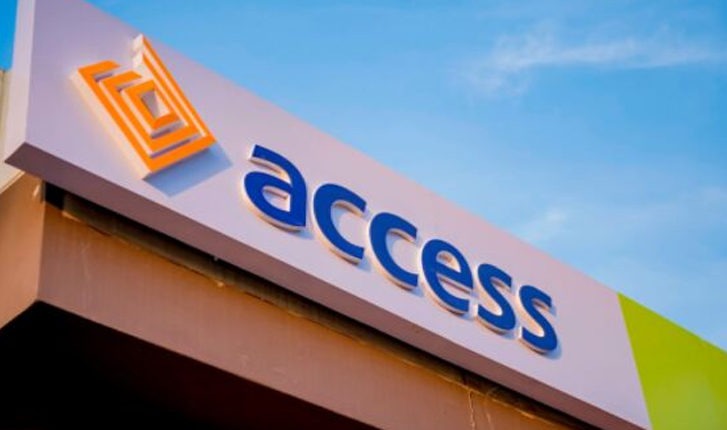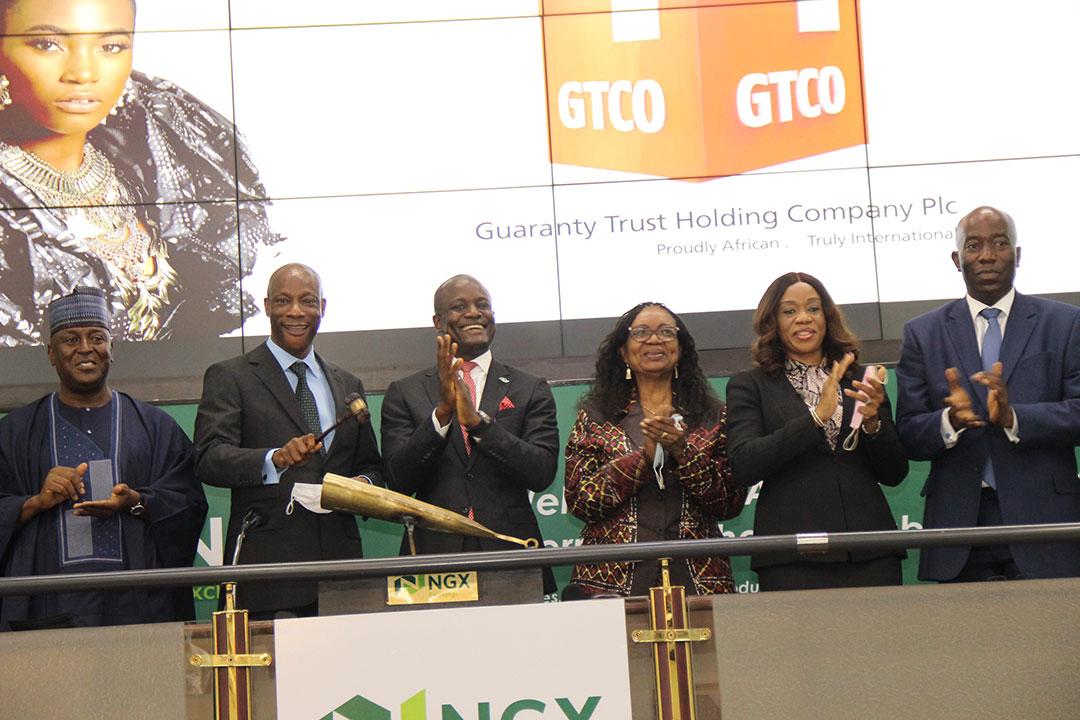In another selfless effort to demonstrate its commitment to financial services with strategic partnership geared towards growing the Fintech space in Nigeria, FirstBank, the country’s leading financial institution and Fintech frontrunner will virtually bring together thousands of fintech giants and enthusiasts in its 2021 Fintech Summit tagged Fintech Summit 5.0. The previous editions of the FirstBank Fintech Summit have been impactful in ensuring the business and banking public are better informed of latest technologies and advancement in the world of financial technology and electronic banking, irrespective of where they are across the globe.
This year’s event will be no different as it will be more enlightening and impactful. Reserve your seat in the FirstBank Fintech Summit 5.0 by registering via this link https://firstbanknigeria.zoom.us/webinar/register/WN_NmkYfeckQqu4vjTWy5lr5w. The virtual event will hold by 10 am on Thursday, 7 October 2021.
The Summit themed “Open banking and its derivative opportunities for the financial ecosystem“’ will feature key and leading players in the banking and technology climate in Nigeria comprising policy influencers, regulatory officials etc. The event is open to everyone keen on being enlightened on Open Banking and the latest API initiatives.
To better understand FirstBank’s commitment and dedication to Nigeria’s growing fintech industry, it is imperative to highlight historical milestones that have set the bank apart, both locally and globally.
FirstBank introduced the first ATM Cash Deposit in Nigeria in 2011. This new technology ensures Nigerians can deposit at any nearby ATM 24 hours a day against the conventional method of waiting until Monday or the following morning to deposit as the bank closes between 4 pm to 5 pm Monday to Friday.
This move eased banking services by making cash deposit machines available, even on weekends, in a nation grappling with insecurity and a high crime rate. It helped curb robbery, ensure the safety of bank customers and guaranteed business continuity during holidays.
Similarly, FirstBank launched agent banking to further the Central Bank of Nigeria’s financial inclusion agenda and improve the number of Nigerians in the financial system and tax net. Since it was launched a few years ago, FirstBank has grown its banking agent, popularly called FirstMonie Agent, to over 130,000 agents nationwide.
FirstBank is the first bank in Nigeria to issue 10 million ATM cards and the second bank to do so in the entire African continent. In 2015 and 2016, FirstBank was also recognized by Interswitch as the first financial institution in Nigeria to achieve 100 million sustained monthly transactions in electronic payment.
This was before it took it a notch higher by introducing an alternative banking channel, WhatsApp Banking, Firstmonie Wallet as well as the recently launched LIT app to support existing channels like FirstMobile, Firstonline, etc.
What FirstBank has done and presently doing is to bridge the existing gap between finance and technology by collaborating with the right people and creating an enabling environment for fintech experts, innovators, cybersecurity experts and other tech giants to work together.
This is one of the reasons, FirstBank Fintech Summit was launched in 2016.
In the now yearly event, Nigeria’s most valuable banking brand with the largest financial inclusion network of over 750 branches and 130,000 banking agents (Firstmonie Agents) that operate across 772 of 774 local government areas, has consistently brought together thousands of participants year after year.
In 2020 alone, FirstBank FinTech Summit brought together over 6,000 participants from 52 countries despite COVID-19 disruption. A Silicon Valley-based innovator was chosen as keynote speaker to showcase the bank’s products to its wide audience and also serves as a platform for the communication of major policy initiatives and pronouncements that also provide clarifications to policy.
The annual Fintech Cocktail also offers the opportunity for networking and collaboration among Fintechs. Meaning, it creates opportunities for collaboration within the community and showcases small businesses and startups from the FirstBank platform. Being part of the FirstBank FinTech Summit 5.0 cannot be overemphasized.
According to FirstBank, it has formed an array of strategic partnerships geared towards expanding the Bank’s digital footprint across the Fintech space, as well as expanding its value-added service propositions through the yearly Fintech Summit. Some of these touch on the delivery of expanded lifestyle services on the Bank’s digital channels, expansion of tech-driven support services to SMEs, as well as consolidation of the Bank’s technical and transactional handshakes and collaborations within the payments space. FirstBank has been at the forefront of FinTech innovation in Nigeria.
In the last few years, FirstBank has revolutionised finance services with unique innovations like the introduction of WhatsApp banking channel, *894# Unstructured Supplementary Service Data (USSD), Firstonline Internet Banking, Firstmonie Wallet, Firstmobile as well as LIT mobile banking application and FastTrack ATM amongst many others designed to enhance more financial operations without needing to physically interact with the machine.
Established in 1894, FirstBank has consistently built relationships with customers focusing on the fundamentals of good corporate governance, strong liquidity, optimised risk management and leadership.
Over the years, the Bank has led the financing of private investments in infrastructure development in the Nigerian economy by playing key roles in the Federal Government’s privatisation and commercialisation schemes. With its global reach, FirstBank provides prospective investors wishing to explore the vast business opportunities that are available in Nigeria, an internationally competitive world-class brand and a credible financial partner.




 Naira4 weeks ago
Naira4 weeks ago


 Naira3 weeks ago
Naira3 weeks ago




 Naira3 weeks ago
Naira3 weeks ago




 Naira3 weeks ago
Naira3 weeks ago




 Naira2 weeks ago
Naira2 weeks ago
 Commodities3 weeks ago
Commodities3 weeks ago


 Sport Business4 weeks ago
Sport Business4 weeks ago


 News3 weeks ago
News3 weeks ago


















